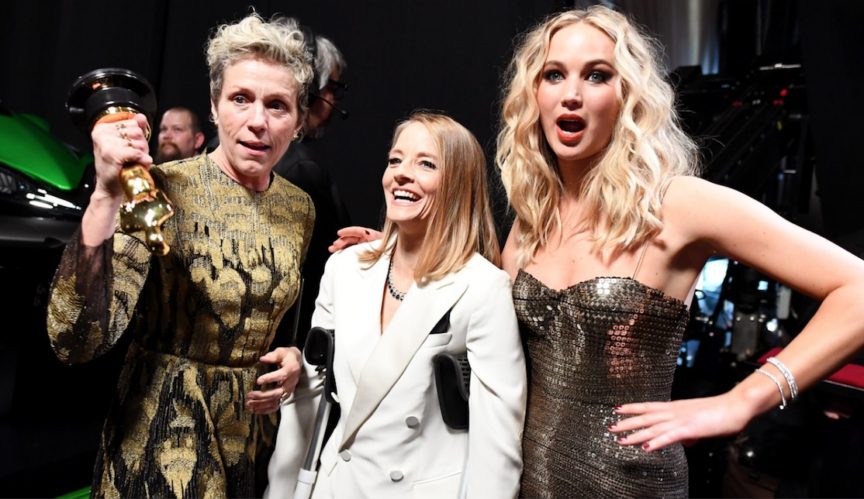
A 1995 study called “The Role of Classification Skill in Moderating Environmental Influences on Children’s Gender Stereotyping” showed that the simple organizational technique of separating kids by gender in elementary school classrooms has a profound effect on the way those kids think about gender. In her excellent book, Parenting Beyond Pink and Blue: How to Raise Your Kids Free of Gender Stereotypes, developmental psychologist Dr. Christia Spears Brown explains:
Early in her career, [Rebecca Bigler, a professor of developmental psychology at the University of Texas at Austin] conducted an experiment with a group of elementary school teachers and their students. Half of the teachers were told to use gender to label, sort, and organize the classroom. They had a pink bulletin board for girls and a blue one for boys, each child’s name card was written in either pink or blue, and children always lined up boy-girl-boy-girl. The teachers would say “The girls are doing a great job today” or “The boys are being good listeners.”
One important part of this experiment, though, was that teachers had to treat boys and girls equally. If boys were allowed to pass out the scissors, girls had to be allowed to pass out the glue—no favoritism or competition allowed! They also couldn’t express any stereotypes. Boys were never asked to be “big and strong” and lift the desks; girls were never asked to sweep the floors. They simply had to “use gender” to sort, label, and classify. In other words, it was a typical, ordinary classroom. In comparison, the other half of the teachers ignored the gender of their students. They used individual names when referring to children and treated the classroom as a whole. There were no “What a smart girl” comments or “I need the boys to settle down” requests. Instead, they said, “Lauren, you are being a great helper” or “What a good learner you are!”
You know what happened: the kids in the gender-focused classes ended up holding much stronger gender stereotypes than those in the individual-focused classes. If only 4 weeks of this approach in a grade-school classroom can have such a narrowing effect on people’s assumptions about gender, imagine what a lifetime of being bombarded so insidiously and relentlessly with the suggestion that gender is the single most defining trait a person possesses can do!
The Oscars and every other film awards ceremony split the actor category up by gender. But why? They don’t do it for Best Director or Best Screenplay. Perhaps that’s because those were all originally male-only fields. But as more and more (yet not nearly enough) women have broken into those roles over the decades (the first female cinematographer was nominated just this year), the Academy hasn’t felt the need to bifurcate any other award categories.
What is so important about gender to acting awards? All the best drama programs are co-ed. One could argue two-time Best Actress winner Jodie Foster is much more masculine than The Crying Game’s Jaye Davidson, who was nominated for Best Supporting Actor. So is it just a matter of anatomy? Surely not, for the first transgender nomination is right around the corner. And when that inevitably happens, the Pence brigade will take up arms against the LGBTQIA community over which category they belong in. Should it just be a matter of whether one identifies as male or female? More and more people are identifying as neither or in-between or fluid; so into which category — Best Actor or Best Actress — will the first nominated “they” go?
Imagine if the Oscars had acting categories based on sexual orientation or race or even hair color! If we don’t do it for these, why do it for gender? Some might argue that special categories for more marginalized groups can help with representation and recognition. Perhaps initially. But the best long-term fix to that problem is not segregation but rather opportunity and inclusion from the start. (See Frances McDormand’s mention — and later explanation — of “inclusion riders” at the 2018 Oscars.)
Open up the category to 9 or 10 nominees like Best Picture, or better yet, create two new categories: Best Drama Acting and Best Comedy/Musical/Adventure Acting, à la The Golden-Globes. After all, tragedy and comedy are two different, long-standing, legit categories of the craft; whether a performer wears a dress or a tux on the red carpet are not. (More and more women are donning suits these days anyway.) An initial 50/50 rule could be implemented, but ideally eventually rendered unnecessary once we get closer to true equality, with equal pay, a diversity of voices, and better representation behind the camera (and at the Academy and among movie reviewers and the list goes on).
Yes, the time has come to leave behind the limitations of this particular labeling. Multiple studies have shown the mere mention of gender can have negative consequences, especially for women, in a culture heavily invested in and so used to dividing things into pink and blue boxes (see again Parenting Beyond Pink and Blue for the meta data). Young people are rejecting gender stereotypes and embracing gender fluidity. And we’ve already abandoned the “genderfication” of many other job titles.
Waiters and waitresses are now servers; stewardesses are now flight attendants; mailmen are now mail carriers; firemen are now firefighters; comediennes are now simply comedians. Those little linguistic changes pack a lot of social punch. They convey that these fields are open to anyone; that one’s gender isn’t one’s most important or necessarily most defining characteristic — talent, work ethic, responsibleness, and success take priority.
So let’s drop the diminutive “ess” and let actors — no matter their gender identity, gender expression or anatomical bits — do their jobs and do them well. Then, may the best human win.

















Definitely “dropping the ‘ess'” would embrace the gender inclusivity that we are heralding right now! Sadly, this category is one of the few categories in which female-identifying people get recognized at the Oscars – really hope that change!
Historically? I don’t know why they differentiate. Now? Because if there were only one category and a man won two years in a row, there’d be a misogyny uproar.
There’s no way the academy will set themselves up for that. The gender categories for best performer are here to stay.
On the stage, we have male and female actors. The term “actress” is useful as an identifier–nobody actually involved with theater would ever call herself an actress any more than a female poet would call herself a poetess.
There is a movement toward racially-blind and gender-blind casting, especially in the classics. Lear–who is an old and in many ways sexless king–has been played most effectively by women. The casting of black, asian, and caucasion actors as brothers has become common. Indeed, in some cases—it is argued–blind casting has gone too far; a recent play used black and caucasian actors as sisters, confusing some of us who thought of them at first as friends or lovers.
What you want now exists. As William Gibson told us, the future is already here; it is just not uniformly distributed.